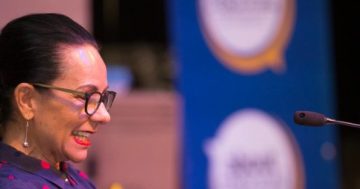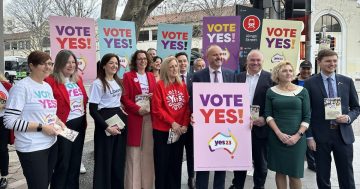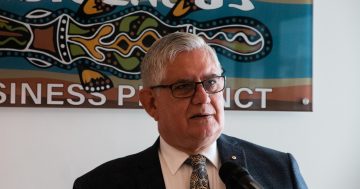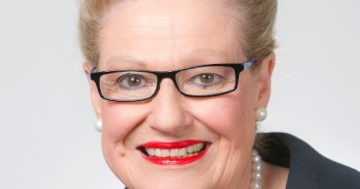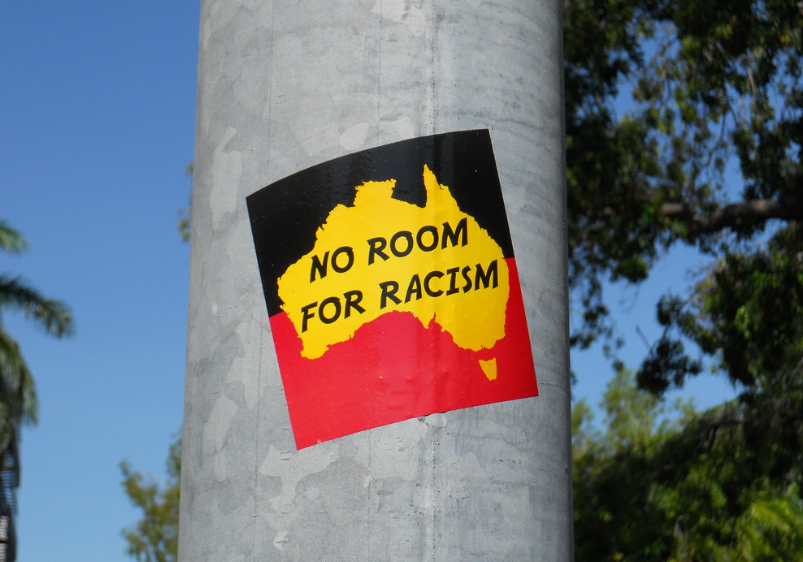
The Voice debate has exposed a side of Australia usually hidden from public view (and for good reason). Photo: Neal Jennings.
I’m no stranger to racist trolling online. I’ve had it on social media – basically, anytime I reference racism I’ve experienced in Australia, a whole bunch of white people like to tell me how untrue that is. Also, if I don’t love it, I should leave it, etc etc.
But it’s safe to say that the racism I experience online is a drop in the ocean compared to what First Nations advocates experience and are experiencing now during the Voice referendum campaign.
I decided to poke my head above the parapets on TikTok to point out what I thought was a fairly benign point about one of the most common ‘No’ arguments, and my goodness – did I regret it. For the first time in my online career, I actually turned comments off.
My point was simply about the ‘lack of detail’ argument – that there is a clear reason for not putting the detailed structure of the Voice in the Constitution, as having it subject to legislation actually gives Australians more flexibility and control over the final structure. Like all legislation, the proposed Voice structure and function would be available for comment and consultation from the public in due course.
Cue hundreds of comments, some of them civil, but many, many of them barbed racist attacks on First Nations Australians, and me. I was told to “keep my opinions to Mumbai”, among other choice suggestions, supposedly to indicate how little claim I have on an Australian identity as a migrant. The commenter, a white man claiming to be a “true Aussie”, clearly didn’t see the irony of his position as a fellow traveller to these shores, regardless of whether he could trace his genealogy to the First Fleet.
Then there were the lengthy and factually incorrect diatribes that are common racist arguments against the Voice, which I’m not going to give more airtime to here. But the one that really got me, that triggered me closing comments and has haunted me since, was one young man who wrote, “We won the war, winner gets the spoils”. That is, the violent colonisation of Australia was a victory for the British, and therefore First Nations Australians forfeit any right to their country or indeed to their wellbeing.
Of course, this is the exact attitude that colonisers had, that drove their actions and ensuing treatment of First Nations people. But that someone would post this under their real name on a public forum in 2023 tells me that the public conversations about the referendum are emboldening people to air their most racist viewpoints and feel no shame about it.
The vast majority of ‘no’ comments on my posts have been of the “there’s not enough detail”, “this is dividing the nation”, and “I’m supporting Indigenous people who are voting no” variety which, while I disagree with them, I understand.
But many, many comments were just vile racist rubbish that proved to me that we are far from actually reaching a unified cultural identity in Australia, that social and political inequality will continue alongside the very real and continuing health, education, and economic inequality that Indigenous Australians face if the Voice doesn’t get up.
For me, this referendum is more than just a vote on the question at hand – it’s also a clear indicator of how willing Australians are to confront the injustices of our shared past that continue to influence our society in the present. I’ll be voting yes because I want to see genuine progress in my lifetime. The first step is acknowledging that we must change, in contrast to those who feel we have nothing that needs changing in the first place.














